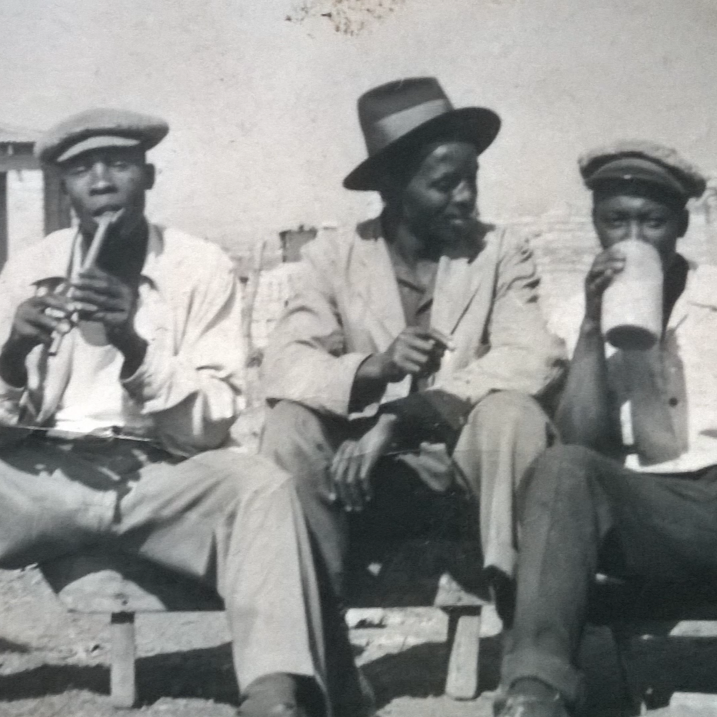Mamelodi – A Timeline of Heroes – cultural significance of Mamelodi and its heroes covered by the darkness of history.

“Mamelodi: A Timeline of Heroes” is a short documentary by Lebo Magolego that delves into the history and cultural significance of Mamelodi, a township in South Africa that has been home to Africans for centuries.
Fundamentally, the film focuses on the importance of preserving and understanding history, particularly highlighting unsung heroes of Mamelodi whose lives and achievements are often overlooked.
The documentary’s main speaker is Aubrey Mogase, an esteemed author and founder of an organization dedicated to documenting the history of Mamelodi. Through his extensive research and passion for his community, Mogase brings to light the rich and complex history of this township. His 2019 book, “Mamelodi – Reflections of a Lifetime,” offers a detailed depiction of the historical developments of Mamelodi and seems to serve as a strong reference point for the making of this film.
The history of Mamelodi goes back as far as the 1400s when this locality used to be referred to as Gamelodi. Africans had occupied this land for hundreds of years, with King Musu Mabena being the first chief over a people who championed the spirit of oneness. This history is marked by a welcoming attitude towards several tribes, including the Tswana and the Pedi people, who lived together harmoniously. Even though it was attacked and defeated by enemies at one point, the community rebuilt itself until the arrival of colonial settlers led to the name of the town being changed to Vlakfontein in the 1800s. It was not until 1962 that the land came to be called by its present name: Mamelodi.
One of the most compelling stories highlighted in the documentary is that of Sefako Makgatho, whom Mogase considers the luckiest black South African. Makgatho studied theology in England and learned of the disaster that awaited South Africa. He returned and organized the community leaders and chiefs to prepare for the impending apartheid. He played one of the most significant roles in conscientizing people and became one of the founders of the South African Native National Congress, later known as the African National Congress (ANC).
The former captain of the Mamelodi United, Captain Gregory Mashilo, also shares insights into the township’s history and achievements in sports.
The documentary also explores the heritage and connections of renowned music icon Miriam Makeba to the land of Mamelodi. We also hear from several people deeply connected to the township in interviews some of which are conducted by Mogase. Including Dr Vusi Mahlasela, musician and founder of Soul Shine Africa Music, Dr Ephraim Mabena, a traditional healer and founder of Mothong Cultural Village.
Poet and cultural activist Mfanufikile Motau; and award-winning trans-disciplinary creative practitioner Azah also are subjects that contribute immensely to the knowledge base that this film provides.
Ex-Captain Mamelodi United, Captain Gregory Mashilo, also shares insights into the township’s history and achievements in sports.

The film’s editing employs fast cuts, moving swiftly between interviews with Mogase and other key subjects. Archival footage and photographs are used sparingly but effectively, complemented by animated reenactments and visualizations that help along the narrative. However, this rapid editing style can make the film’s under-30-minute runtime feel rushed and overly condensed. Viewers may find themselves struggling to mentally process what one person is talking about before it cuts to another and then another again.
Another thing that made the film seem a bit overwhelming is the somewhat imposing sound score that is constantly present throughout. Fortunately, it wasn’t monotonous but a plethora of tunes and styles of music that give you another sense of appreciation of the arts that this film is seeking to highlight.
This documentary, however, also daringly points out undesirable side effects and extremes of apartheid but celebrates notable achievements of the black community, such as the opening of the first cinema in a black township in 1964.
In the final minutes of the film, Mogase aptly summarizes it’s message: “Today we are seeing more political leaders than community leaders. It is because these community heroes, their stories are overshadowed mostly by politics.”
This poignant statement underscores the necessity of the documentary, which seeks to bring to light the timeless heroes of Mamelodi whose contributions who otherwise have been covered in darkness of history.
“Mamelodi – A Timeline of Heroes” is a film that needs to be made, celebrating the heroes who have shaped Mamelodi’s rich history. While the editing style and sound score may detract slightly from the overall experience, the documentary’s heartfelt storytelling and important subject matter make it a worthwhile watch. I would score this documentary film 3 out of 5 stars.
Catch the film at the Durban International Film Festival: https://ccadiff.ukzn.ac.za/diff45/mamelodi-a-timeline-of-heroes/
Screening Schedule:
19 July 17:30 Gateway 9
25 July 17:15 Gateway 9
Author: Tony Asankomah
This review emanates from the Talent Press programme, an initiative of Talents Durban in collaboration with the Durban FilmMart Institute and FIPRESCI. The opinions expressed in this article are those of the author (Tony Asankomah) and cannot be considered as constituting an official position of the organisers.

